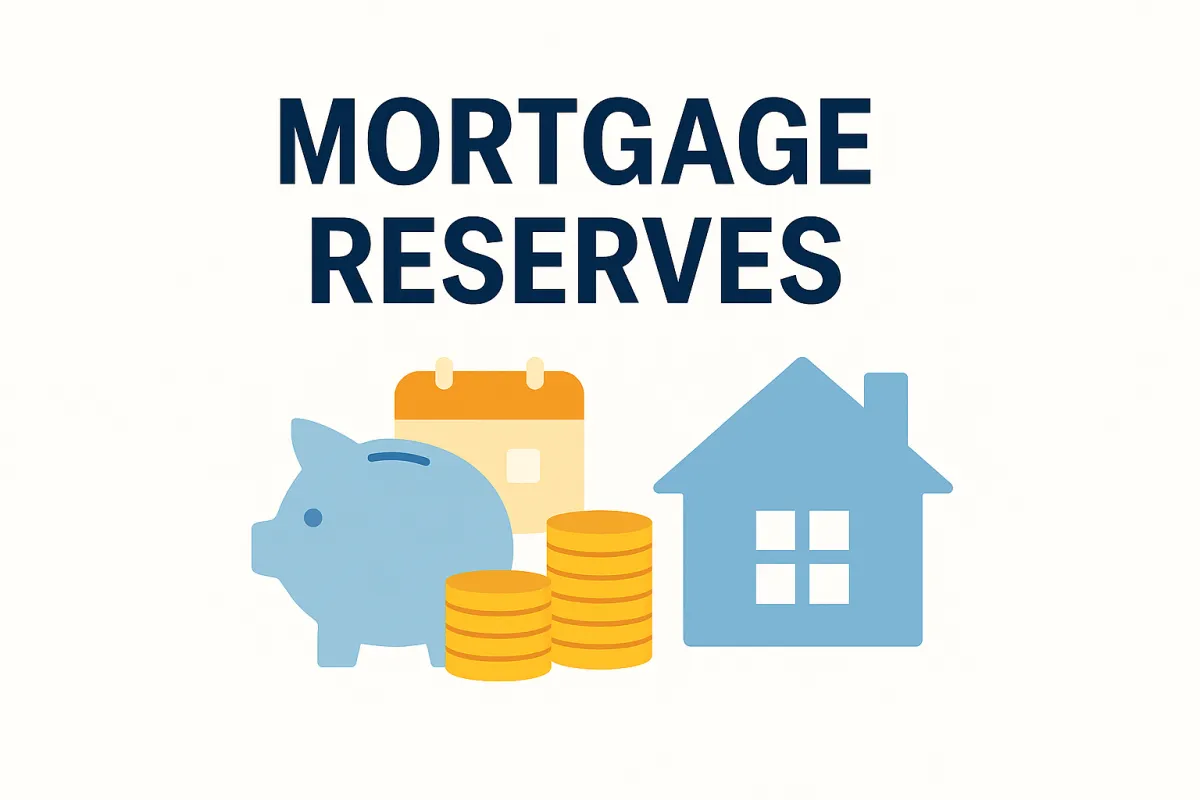
Understanding Mortgage Reserves: What They Are and Why They Matter
💰 What Are Mortgage Reserves?
Mortgage reserves refer to the money you have left in savings after your loan closes — and lenders may require it to ensure you can make future payments. It’s like a financial safety net for both you and the lender.
Reserves are typically measured in months’ worth of mortgage payments, including:
Principal
Interest
Taxes
Insurance (PITI)
🔍 Why Do Lenders Require Reserves?
Lenders want to see that you can continue making payments even if your income temporarily stops. Reserves give lenders confidence that you're financially stable — especially in these scenarios:
You’re buying a second home or investment property
You’re self-employed
You have borderline credit or higher DTI
It’s a jumbo loan or non-QM program
📊 How Much Do You Need?
Reserve requirements vary by loan type:
Loan TypeTypical Reserve RequirementConventional (Primary)0–2 months PITIFHAUsually not required (unless DU/LP flags it)VATypically not requiredInvestment Properties6 months PITI often requiredJumbo Loans6–12 months or moreDSCR/Non-QMUp to 12 months or based on guidelines
Important: If your mortgage payment is $2,500/month and your lender requires 2 months’ reserves, you’ll need $5,000 in the bank after closing.
🧠 What Qualifies as a Reserve?
These must be liquid or semi-liquid assets:
Checking & savings accounts
Stocks, bonds, mutual funds
Vested retirement accounts (401k, IRA — may use 60–70% of balance depending on type)
Money market funds
Gift funds (in limited cases)
Note: You can’t use borrowed funds or future income to satisfy reserve requirements.
💡 Final Thoughts
Mortgage reserves are one of those behind-the-scenes approval factors most buyers never hear about — until they’re flagged by underwriting. Understanding reserves upfront helps you plan better and avoid surprises during closing.
🎯 Want to know how many reserves you need for your specific loan?
Contact Tim Lyons today for a personalized review of your financial profile and a loan strategy that sets you up for success.
⚠️ Required Disclosure
These materials are not from HUD or FHA and were not approved by HUD or a government agency. Tim Lyons | NMLS #2182927 | Licensed in FL & OH
